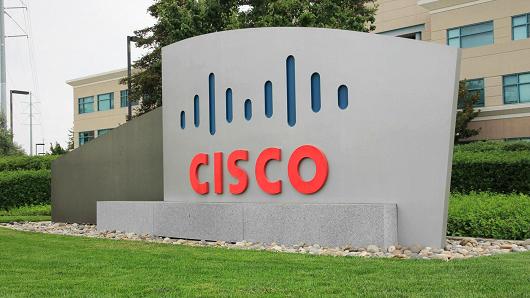
Justin Solomon | CNBC
Cisco sign at their campus in San Jose, Calif.
Security researchers say they have uncovered previously
unknown attacks on routers which direct traffic around the Internet, allowing
hackers to harvest vast amounts of data while going undetected by existing
cybersecurity defences.
The attacks replace the operating system used in network equipment
from Cisco, the world's biggest maker of
routers, the computer forensic arm of U.S. security research firm FireEye,
Mandiant, said on Tuesday.
So far, Mandiant has found 14 instances of router implants
in India, Mexico, Philippines and Ukraine, the company said in a blog post.
Separately, Cisco confirmed that it had alerted customers to
these attacks on Cisco operating system software platforms.
The company said that it had worked with
Mandiant to develop ways for customers detect the attack, which if found, will
require them to re-image the software used to control their routers.
"If
you own (seize control of) the router, you own the data of all the companies
and government organisations that sit behind that router," FireEye Chief
Executive Dave DeWalt said of his company's discovery.
Routers
operate outside the perimeter of firewalls, anti-virus and other security tools
which organisations around the world use to safeguard data traffic.
Effectively,
the $80 billion which technology market research firm IDC estimates is spent
annually on cybersecurity tools offer no protection against this form of
attack, according to FireEye.
The
malicious program has been dubbed "SYNful", a reference to how the
implanted software can jump from router to router using their syndication
functions.
Computer
logs from infected routers suggest the attacks have been taking place for at
least a year, FireEye's DeWalt said.
Cisco
said SYNful did not take advantage of any vulnerability in its own software.
Instead it stole valid network administration credentials from organisations
targeted in the attacks or by gaining physical access to their routers.
The
affected routers have been used to hit multiple industries and government
agencies, DeWalt said.
The
implanted software, which duplicates normal router functions, could also
potentially affect routers from other makers, he said.
Source: CNBC